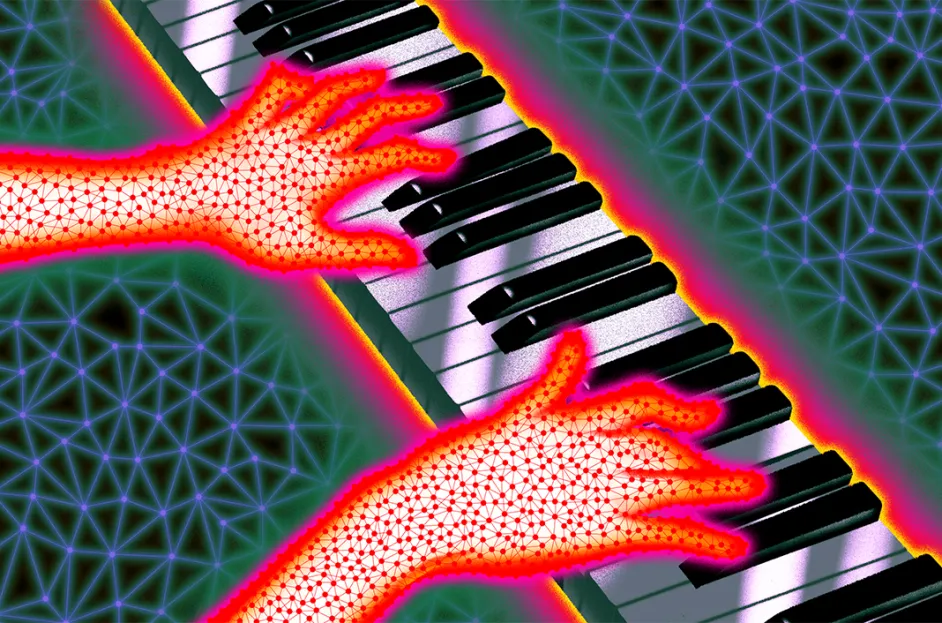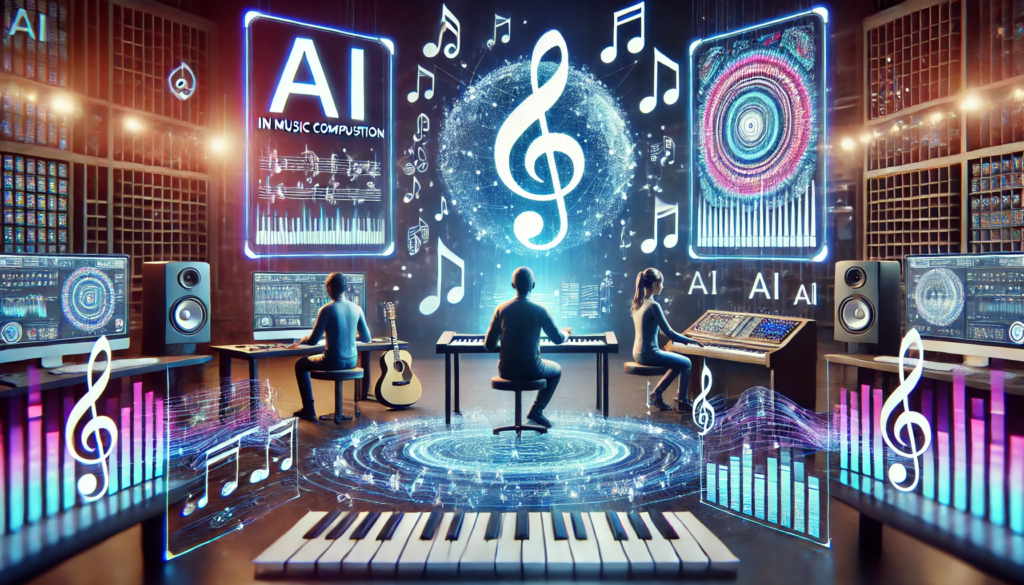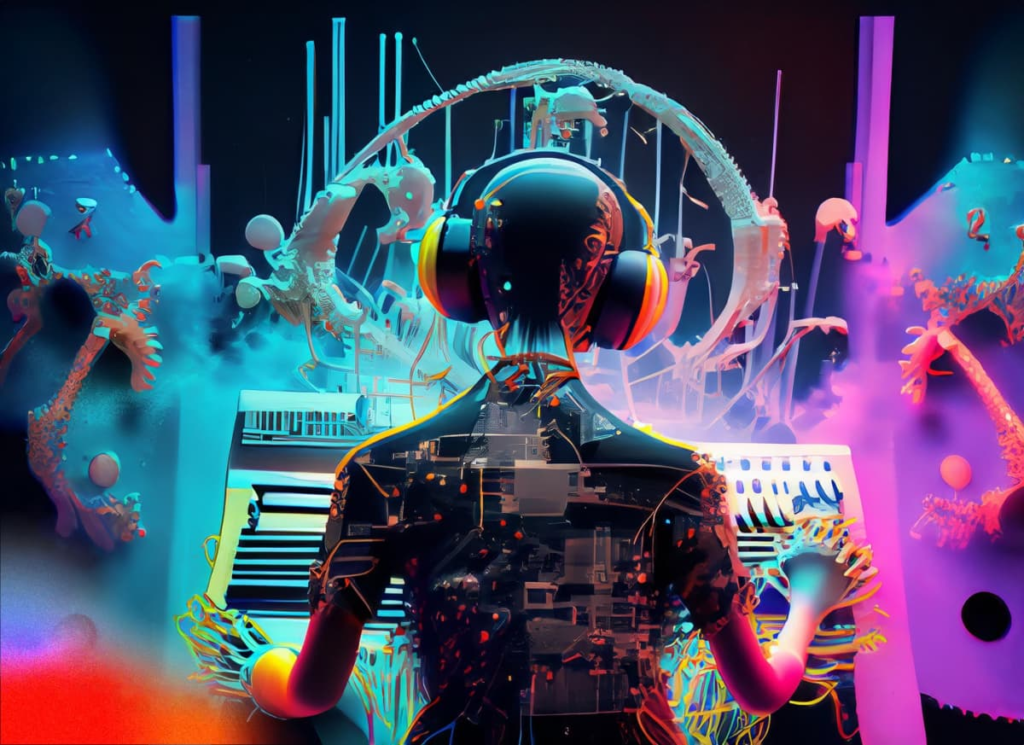The music industry is experiencing a seismic shift, thanks to the rise of AI-generated music tools. These innovative platforms are transforming how artists write songs, produce tracks, and connect with audiences. From amateur musicians to Grammy-winning producers, AI is democratizing creativity, making music production faster, more accessible, and endlessly experimental. In this article, we’ll explore how AI music tools are reshaping songwriting and production, their benefits, challenges, and what the future holds for this exciting technology.

What Are AI-Generated Music Tools?
AI-generated music tools use artificial intelligence, particularly machine learning, to assist in creating music. These platforms analyze vast datasets of songs, genres, and sounds to generate melodies, harmonies, lyrics, or even full tracks. Some tools focus on specific tasks, like crafting a catchy chorus, while others can produce entire compositions in seconds.
Popular AI music platforms include Suno, Soundraw, Amper Music, and OpenAI’s MuseNet. These tools allow users to input preferences—such as genre, mood, or tempo—and receive tailored music outputs. For example, a user might request a “chill lo-fi beat” or a “high-energy pop anthem,” and the AI delivers a track ready for vocals or further editing.
How AI Is Revolutionizing Songwriting
1. Inspiration on Demand
Songwriting can be daunting, especially when creativity stalls. AI tools act as a muse, offering instant inspiration. Platforms like Suno and AIVA can generate melody ideas or chord progressions based on a user’s input. This is a game-changer for songwriters facing writer’s block, as they can experiment with endless variations until they find the perfect vibe.
For example, an aspiring artist might hum a rough melody into an AI tool, which then refines it into a polished hook. This collaborative process sparks creativity and helps musicians overcome creative hurdles.

2. Lyric Generation
Writing lyrics that resonate with listeners is no easy task. AI tools like LyricStudio and Jasper AI are stepping in to help. These platforms generate rhymes, metaphors, and storytelling elements tailored to specific genres or themes. Whether it’s a heartfelt ballad or a punchy rap verse, AI can suggest lyrics that feel authentic and engaging.
While AI-generated lyrics may not always match the emotional depth of human writing, they provide a strong starting point. Songwriters can tweak AI suggestions to add their personal touch, saving time and effort.
3. Accessibility for Beginners
AI music tools are leveling the playing field for newcomers. In the past, songwriting required technical skills, expensive software, or access to a studio. Now, anyone with a smartphone or laptop can create professional-quality music. Tools like Soundtrap and BandLab offer user-friendly interfaces that guide beginners through the songwriting process, from composing to mixing.
This accessibility is empowering a new generation of artists, especially those who lack formal training or resources. As a result, the music industry is seeing an influx of diverse voices and experimental sounds.
Transforming Music Production
1. Faster Production Timelines
Producing a song used to take weeks or even months, involving multiple collaborators and costly equipment. AI tools streamline this process, enabling artists to produce tracks in hours. Platforms like LANDR use AI to automate mixing and mastering, ensuring a polished sound without the need for a professional engineer.
For independent artists, this speed is a lifeline. They can release music more frequently, keeping up with the fast-paced demands of streaming platforms like Spotify and Apple Music.

2. Cost-Effective Solutions
Hiring producers, session musicians, or sound engineers can be prohibitively expensive. AI tools offer affordable alternatives. For instance, Amper Music allows users to create royalty-free tracks for videos, podcasts, or albums at a fraction of the cost of traditional production.
This cost-effectiveness is particularly valuable for content creators, indie filmmakers, and small businesses that need high-quality music without breaking the bank.
3. Endless Experimentation
AI encourages bold experimentation by generating sounds that push creative boundaries. Tools like Google’s Magenta can blend genres, create unconventional rhythms, or mimic rare instruments. Producers can explore uncharted sonic territories, resulting in fresh, innovative tracks that stand out in a crowded market.
For example, a producer might combine jazz harmonies with trap beats or fuse classical strings with EDM drops. AI makes these experiments seamless, inspiring artists to take risks.
Benefits of AI Music Tools
- Efficiency: AI reduces the time and effort needed to write and produce music, allowing artists to focus on creativity.
- Inclusivity: Beginners and professionals alike can use AI tools, making music creation accessible to all.
- Versatility: AI supports a wide range of genres, moods, and styles, catering to diverse artistic visions.
- Scalability: From solo artists to large production teams, AI tools adapt to different workflows and project sizes.
Challenges and Concerns
Despite their advantages, AI music tools face some hurdles:
1. Authenticity and Emotional Depth
Critics argue that AI-generated music lacks the soul and emotional nuance of human-created art. While AI can mimic patterns and structures, it may struggle to capture the raw emotion of a deeply personal song. For now, many artists use AI as a collaborator rather than a replacement for human creativity.
2. Copyright and Ownership
Who owns an AI-generated song? This question is sparking debates in the music industry. If an AI creates a melody based on existing songs, is it truly original? Platforms like Soundraw and Amper Music offer royalty-free music, but legal gray areas remain. Clear regulations are needed to address copyright and fair compensation.
3. Oversaturation
As AI makes music production easier, the market is becoming flooded with tracks. Standing out on platforms like Spotify or TikTok is harder than ever. Artists must combine AI tools with strong branding and marketing to cut through the noise.
The Future of AI in Music
The potential for AI in music is limitless. Here’s what we can expect in the coming years:
- Personalized Music Experiences: AI could create custom songs for individual listeners based on their preferences or mood. Imagine a playlist that evolves in real-time to match your emotions.
- Live Performances: AI tools might power live shows, generating improvised beats or visuals that respond to the crowd’s energy.
- Collaboration with Humans: Rather than replacing musicians, AI will likely become a trusted co-creator, enhancing human artistry with its technical prowess.
- Ethical Frameworks: As AI music grows, the industry will need guidelines to ensure fair use, protect intellectual property, and maintain artistic integrity.
Real-World Impact
AI music tools are already making waves. Independent artist Taryn Southern used AI platform Amper Music to co-create her 2018 album, I AM AI, one of the first albums entirely produced with AI. Major artists like Tame Impala and Björk have also experimented with AI to push creative boundaries.
Beyond artists, businesses are leveraging AI music for commercials, video games, and social media content. Platforms like Epidemic Sound and Artlist use AI to curate music libraries, helping creators find the perfect track instantly.
Why This Matters for You
Whether you’re a budding musician, a content creator, or a music fan, AI-generated music tools are changing the game. They offer new ways to express creativity, discover sounds, and enjoy music. For artists, AI is a powerful ally that amplifies their vision. For listeners, it means more diverse, innovative music to explore.
Conclusion
AI-generated music tools are revolutionizing songwriting and production, making the music industry more inclusive, efficient, and experimental. While challenges like authenticity and copyright persist, the benefits far outweigh the drawbacks. As technology evolves, AI will continue to shape the sound of the future, empowering artists and delighting listeners worldwide.
Ready to dive into AI music creation? Try platforms like Suno or Soundraw to unleash your inner producer. The next chart-topping hit might just be a click away!
Also Know :- Digital Product Passports: Revolutionizing E-Commerce and Sustainability






